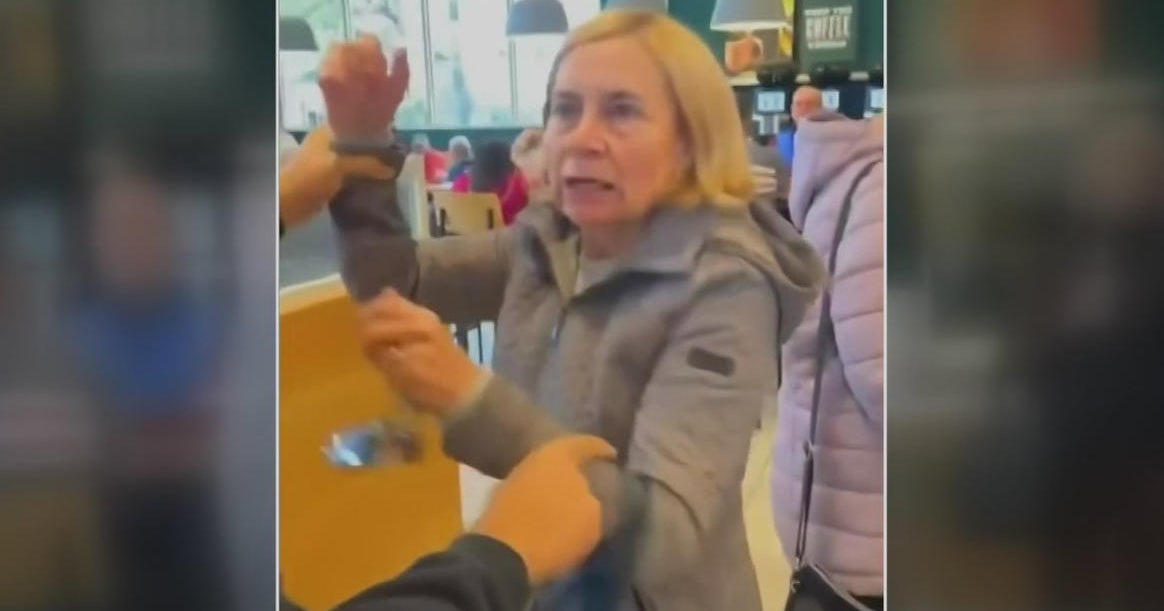Blagojevich Asks Full Court To Hear Appeal Of Corruption Case
CHICAGO (CBS/AP) -- Former Illinois Gov. Rod Blagojevich asked a full federal appellate court in Chicago to rehear his appeal after three judges recently overturned five of his 18 corruption convictions.
The imprisoned Democrat's lawyers filed the request Tuesday with the 7th U.S. Circuit Court of Appeals.
The three-judge panel threw out convictions linked to Blagojevich's attempt to land a post in President Barack Obama's Cabinet in exchange for appointing an Obama adviser to the president's old U.S. Senate seat.
It also ordered that the 58-year-old be resentenced. But the ruling said the original 14-year sentence might be considered fair even after subtracting the five overturned counts. So, Blagojevich's chances of a drastically reduced sentence seem slim.
Blagojevich is hoping the full court will overturn more counts. Full-court hearings aren't granted automatically.
In a statement, Blagojevich said he would "fight on" because "what is at stake is nothing less than the rule of law."
"These have been hard years for my family---for our children and for my wife, Patti, and me," Blagojevich said. "There is nothing I desire more than to return home to my wife and two young daughters. I cherish them more than anything in the world. I wish this was over. But I must fight on."
Podcast
Appeals lawyer Len Goodman is leading the former governor's likely final fight for freedom.
"The conviction needs to be overturned," Goodman said. "I know nobody wants a third Blagojevich trial, but fair is fair. What I am asking for him si what I would ask for any client who got a raw deal.
The 7th Circuit only agrees to have the full court rehear a case a few times per year. For Blagojevich's case to be reheard, a majority of the nine active judges must vote in favor of the request within the next 14 days.
Judges can agree to rehear a case for several reasons, including if they think a three-judge panel's ruling contradicts rulings in other cases or if they think there's a uniquely important legal issue they want to weigh in on.
A central focus of the three-judge panel's opinion on Blagojevich -- released on July 21 -- was the question of when an elected official crosses the line between legal and illegal political horse-trading.
The three judges said the determining factor was money. They said Blagojevich crossed the line into illegality when he sought cash for naming someone to Obama's old Senate seat or in exchange for other official gubernatorial action. But they said he didn't cross the line by asking for a Cabinet seat for himself. Secretly trading favors based on politicians' executive powers is legal and is a legitimate mechanism for getting things done for constituents, they concluded.
Some critics have said the opinion went too far in declaring back-room deals legal.
The three judges said the evidence against Blagojevich was "overwhelming" on the convictions they upheld and that those convictions -- including extortion and bribery conspiracy.
Jeff Cramer, a former federal prosecutor in Chicago, says it's rare that an appeals court takes a case en banc -- that is, the entire appeals court hears it.
"Circuit courts are reluctant to do en bancs, they are rare, especially when you have what you have here which is a unanimous panel," Cramer said.
He thinks Blagojevich's attorneys will then ask the U.S. Supreme Court to take the case but that they will probably turn it down.
After his 2008 arrest, Blagojevich became the butt of jokes on late-night TV for his well-coiffed hair and his foul-mouthed rants on FBI wiretaps. In one, he crows about the Senate seat: "I've got this thing and it's f------ golden. And I'm just not giving it up for f------ nothing."
(TM and © Copyright 2015 CBS Radio Inc. and its relevant subsidiaries. CBS Radio and EYE Logo TM and Copyright 2015 CBS Broadcasting Inc. Used under license. All Rights Reserved. This material may not be published, broadcast, rewritten or redistributed. The Associated Press contributed to this report.)



